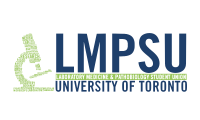2023-2024 LMP Course Offerings
OVERVIEW
To graduate with an LMP Specialist under your belt, you will need these courses in the following years.
First Year:
( BIO120H1, BIO130H1); ( CHM135H1, CHM136H1)/ CHM151Y1; ( MAT135H1, MAT136H1)/ MAT137Y1/ MAT157Y1
First or Second Year:
( PHY131H1, PHY132H1)/( PHY151H1, PHY152H1)
Second Year:
BCH210H1; BIO230H1; BIO260H1/ HMB265H1; CHM220H1; CHM247H1/ CHM249H1; PSL300H1; PSL301H1; STA220H1/ BIO220H1
Third Year:
BCH370H1; BCH311H1/ CSB349H1;( IMM340H1, IMM350H1)/( IMM341H1, IMM351H1)/( MGY377H1, MGY378H1); LMP300Y1/( LMP340H1, LMP350H1); LMP365H1
Fourth Year:
At least 4 of LMP402H1, LMP403H1, LMP405Y1, LMP406H1, LMP408H1, LMP410H1, LMP415H1, LMP436H1 (Note: If the research project LMP405Y1 is taken, three additional courses from the list are still required.)
LIST OF COURSES
Hours: TBA
Credit course for supervised participation in faculty research project. Details, here. Not eligible for CR/NCR option.
Distribution Requirements: Science
LMP301H1: Introduction to the Biochemistry of Human Disease
Introduces concepts and mechanisms of disease processes as they arise from disturbances of normal biochemical and physiological functions. The rational use of the clinical biochemistry laboratory in the diagnosis and management of disease is explained. Not intended for students in the Pathobiology Specialist program.
LMP340H1: Introduction to Pathobiology I
Concepts in pathogenesis, cell injury, adaptation and death; oxidative stress, ion channels and pumps, calcium homeostasis. Molecular basis of diseases affecting iron, blood and the cardiovascular system. The laboratory examines anatomical and histopathological specimens in cardiac disease.
LMP350H1: Introduction to Pathobiology II
Molecular basis of tissue repair and fibrosis, endocrine and signaling disorders, introduction to neurodegenerative diseases. Animal models and genetic basis of disease. Mechanisms infection by virus, bacteria and parasites. Topics are chosen to complement LMP340H1 and introduce areas that may be explored in more depth in 400-level LMP courses. Enrolment is limited to students specializing in Pathobiology who have completed LMP340H1.
LMP363H1: Principles of Pathobiology
Pathological changes brought on by foreign compounds; mechanisms of pathologic, toxic and carcinogenic change.
LMP365H1: Neoplasia
A general introduction to the cellular and molecular aspects of cancer and its etiology. The laboratory component presents the range of benign and malignant tumor types at the gross and histological levels. Pathophysiology of cancer, invasion and metastases, role of the immune system.
Hours: TBA
Credit course for supervised participation in faculty research project. Details, here. Not eligible for CR/NCR option.
Distribution Requirements: Science
LMP402H1: Inflammation and Infection
Mechanisms that allow microbial pathogens to cause disease and the host to detect infection, mount an inflammatory response and resolve the infection. Primary research articles are discussed. Topics include commensal bacteria, bacterial toxins, pattern recognition receptors, leukocyte emigration, chemotaxis, and the role of non-coding RNAs in immunity.
LMP403H1: Immunopathology
The immune system in disease. Responses of the immune system to host invasion, injurious stimuli, and transplantation. Immunopathology of organ-specific diseases including pancreas, gut, liver, heart, kidney, and blood. Intended for students specializing in pathobiology or related programs.
LMP405Y1: Project in Pathobiology
A self-contained research project to be completed under the supervision of a faculty member. The main areas of research are as listed in the description of the Department (above). The student will normally have completed three full years of study, and is expected to devote at least one full day per week to the project. Admission is by arrangement with the Department and with a particular supervisor. A list of potential supervisors is available from the Departmental Office and on our web site. Not eligible for CR/NCR option.
LMP406H1: Pathobiology of the Cardiovascular System
Pathobiology of the heart, blood vessels, and lymphatic system. Congenital diseases of the heart, ischemic injury, stroke. Treatments of vascular disease and cardiovascular biomaterials. Major focus on atherosclerosis and hypertension. The emphasis is on the underlying cell biology of these processes.
LMP408H1: Genetic Modelling of Human Development and Disease
Introduces use of genetic model systems and organisms in exploring aspects of human reproduction, development, and disease. A major focus is on the impact of the genetic models on understanding human health, and disease. Ethical issues in animal research, genetic manipulation, and disease modeling are highlighted.
LMP410H1: Pathobiology of Neurodegenerative Disease
Molecular basis of neurodegenerative diseases of the central and peripheral nervous systems. Emphasis on the molecular pathobiology of neurodegenerative diseases, current research developments and guidance with writing of research proposals. Mid-term and final exams will practice assembly of a succinct research proposal and query neurodegenerative disease material taught in course.
LMP415H1: Forensic Pathobiology
A thematic review of the major scientific areas and research controversies in forensic medicine. The approach is mechanistic analysis and evidence-based medicine. Classical forensic medicine is critically analyzed with emphasis on experimental methods to resolve controversies. We also explore how the justice system utilizes medical and scientific data.
LMP436H1: Microbial Pathogenesis
Molecular mechanism involved in pathogenesis of infectious disease. Topics include recurrent themes in the establishment of infectious disease, such as adherence and spread of pathogenic bacteria as well as evasion of host defences. Emphasis is placed on genetic characterization and expression of virulence determinants and on interactions between bacterial pathogens and their hosts.
